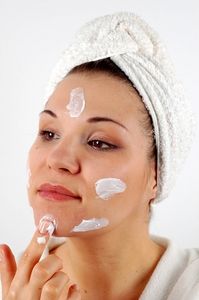 When it comes to acne treatments, there is no single regimen that every patient will respond well to. This is why consulting a dermatologist is important to find out which one would work for you. In some cases, you can combine prescription medicines with treatments done in our office in New York City. For less severe cases, a simple prescription or an over-the-counter treatment may be the solution.
When it comes to acne treatments, there is no single regimen that every patient will respond well to. This is why consulting a dermatologist is important to find out which one would work for you. In some cases, you can combine prescription medicines with treatments done in our office in New York City. For less severe cases, a simple prescription or an over-the-counter treatment may be the solution.
These are medications that are applied directly to the affected area and work by fighting bacteria which cause acne. Examples include Erygel and Clindamycin.
A retinoid works by reducing the size of microcomedones which can cause acne lesions. They also help prevent inflammation. Common retinoids are Tazorac, Retin-A Micro and Differin.
An oral antibiotic works by eliminating and preventing the growth of bacteria that lead to inflammatory acne. Numerous antibiotics, such as Minocycline, Doxycyline, Solodyn and Zithromax are used for their anti-acne effects.
For more severe cases, Isotretinoin is a preferred treatment option if other treatments have failed. It reduces the amount of sebum produced by the skin and helps fight the p. acnes bacteria which causes acne. While Accutane is the most popular brand name of Isotretinoin, other medications that contain it such as Sotret and Amnesteem are sometimes prescribed.
When you consult with our dermatologists, they will provide you with complete information about the prescribed medications, including details about side effects. The most common undesirable effects of topical medications include a dry sensation and redness on the area being treated. Oral medications can have other side effects, which will be explained to you during your appointment.